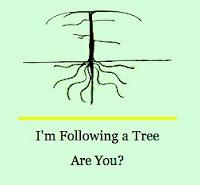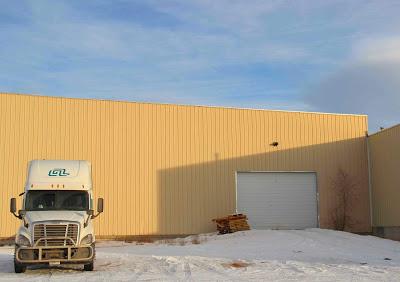
Late afternoon. These days no direct light reaches the boxelder in the nook; the sun sets too far south.
Years ago—long before I moved to the West Side—heavy-equipment operators, concrete masons, carpenters, and laborers of all sorts constructed a large building between my house and the river. They cleared and leveled the site, poured slabs, framed structures, attached sheathing and roof, and installed doors. But the ground at the base was left bare. That’s how history begins.
Today another history: a tall inside corner, a nook unkempt and likely unnoticed, a boxelder standing in the perfect right angle above thistles, tumbleweeds and trash. Trees know when history begins, always sprouting up fresh
Shoots sucker along concrete, leaves spread green across corrugated metal, a tree now just taller than the door will reach beyond the roof.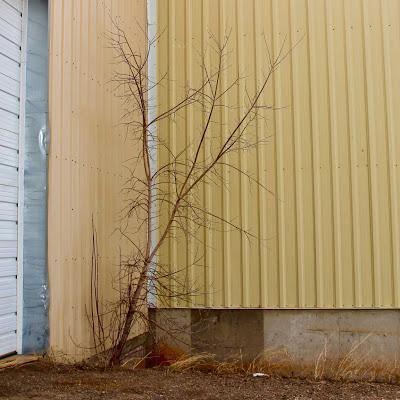
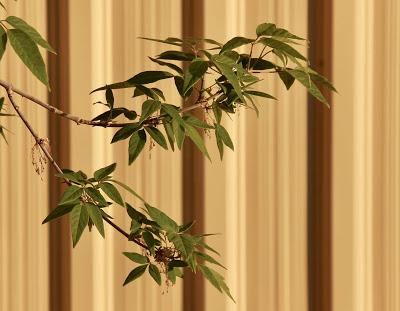
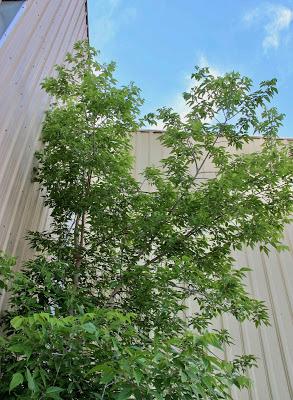 This boxelder is adventive, well-established on a site that was barren not that long ago (1). It’s not so much of a stretch to link it to Advent, which started just last week on the fourth Sunday before Christmas. Adventive and advent both come from Latin advenire, to arrive. But here the similarity ends. Though the nook appears harsh and unforgiving, living there is hardly a form of penance. That boxelder seed landed in a sanctuary—shade, runoff, no competition. Whatever we leave empty will be filled.
This boxelder is adventive, well-established on a site that was barren not that long ago (1). It’s not so much of a stretch to link it to Advent, which started just last week on the fourth Sunday before Christmas. Adventive and advent both come from Latin advenire, to arrive. But here the similarity ends. Though the nook appears harsh and unforgiving, living there is hardly a form of penance. That boxelder seed landed in a sanctuary—shade, runoff, no competition. Whatever we leave empty will be filled.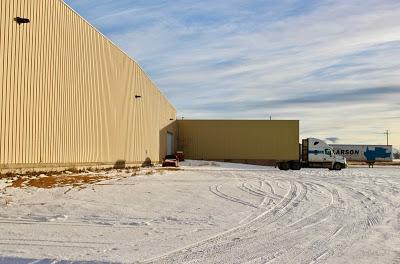
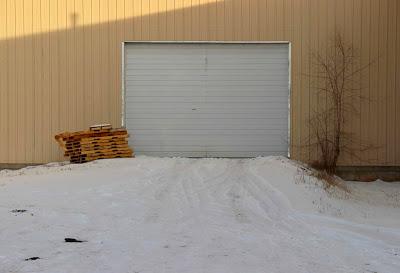
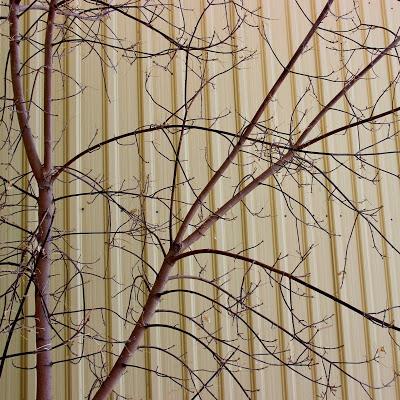
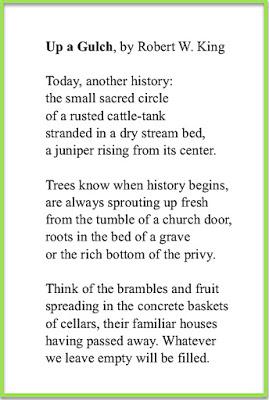 I came across “Up a Gulch” in one of King’s chapbooks, In the Empty Mountains. I was only a few lines into the poem when it dawned on me—this is about the boxelder I’m following! Thanks to Lithic Press for permission to include it here (2).Bob King was well known and appreciated by Colorado poets. He started the Colorado Poets Center, a richly annotated directory of published poets living in or with strong ties to the state. His own works include seven chapbooks, two full volumes of poetry, essays, articles, short fiction, creative non-fiction and more. King passed away in April 2017, shortly after In the Empty Mountains was published. For more about him, see this tribute.
I came across “Up a Gulch” in one of King’s chapbooks, In the Empty Mountains. I was only a few lines into the poem when it dawned on me—this is about the boxelder I’m following! Thanks to Lithic Press for permission to include it here (2).Bob King was well known and appreciated by Colorado poets. He started the Colorado Poets Center, a richly annotated directory of published poets living in or with strong ties to the state. His own works include seven chapbooks, two full volumes of poetry, essays, articles, short fiction, creative non-fiction and more. King passed away in April 2017, shortly after In the Empty Mountains was published. For more about him, see this tribute.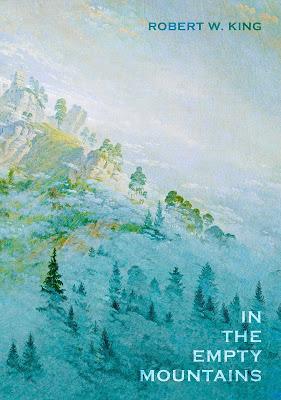 Notes
Notes
(1) Botanists disagree on the definition of adventive. Some say only non-native species qualify as adventive. Others use the term for native or non-native species that are new to a site and do no harm. I use it similarly, but without the do-no-harm criterion (too hard to judge!).(2) Robert King’s In the Empty Mountains is available from Lithic Press, an independent small press in Fruita, Colorado:
“… these poems reveal the joys, pains, and insights of a man long on the wisdom road. He sees daily occurrences from a very broad perspective, that leads to humility that cannot hide.”[The description in the Lithic catalog features “Up a Gulch” as a selected excerpt!]
